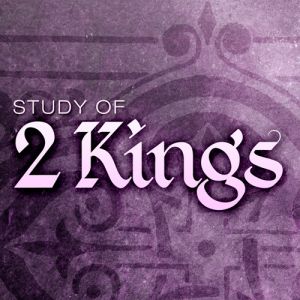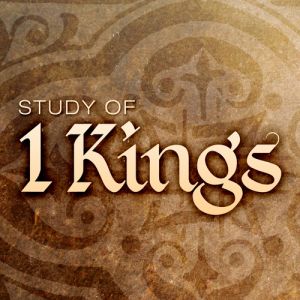1 Chronicles
By Pastor Frank Gallegos, Sr. on June 11, 2015 in
Church News

Book of 1 Chronicles
Author: The Book of 1 Chronicles does not specifically name its author. The tradition is that 1 and 2 Chronicles were written by Ezra.
Date of Writing: The Book of 1 Chronicles was likely written between 450 and 425 B.C.
Purpose of Writing: The Books of 1 & 2 Chronicles cover mostly the same information as 1 & 2 Samuel and 1 & 2 Kings. 1 & 2 Chronicles focus more on the priestly aspect of the time period. The Book of 1 Chronicles was written after the exile to help those returning to Israel understand how to worship God. The history focused on the Southern Kingdom, the tribes of Judah, Benjamin and Levi. These tribes tended to be more faithful to God.
Key Verses: 1 Chronicles 11:1-2, “All Israel came together to David at Hebron and said, ‘We are your own flesh and blood. In the past, even while Saul was king, you were the one who led Israel on their military campaigns. And the Lord said to you, “You will shepherd my people Israel, and you will become their ruler.”’”
1 Chronicles 21:13, “David said to Gad, ‘I am in deep distress. Let me fall into the hands of the LORD, for his mercy is very great; but do not let me fall into the hands of men.’”
1 Chronicles 29:11, “Yours, O LORD, is the greatness and the power and the glory and the majesty and the splendor, for everything in heaven and earth is yours. Yours, O LORD, is the kingdom; you are exalted as head over all.”
Brief Summary: The first 9 chapters of 1 Chronicles are dedicated to lists and genealogies. Further lists and genealogies are scattered throughout the rest of 1 Chronicles. In between, the Book of 1 Chronicles records David’s ascension to the throne and his actions thereafter. The book concludes with David’s son Solomon becoming King of Israel. Briefly outlined, the Book of 1 Chronicles is as follows: Chapters 1:1-9:23 - Selective Genealogies; Chapters 9:24-12:40 - David’s ascent; Chapters 13:1-20:30 -David’s reign.
Foreshadowings: In David’s song of thanksgiving to God in 1 Chronicles 16:33, he refers to the time when God will come “to judge the earth.” This foreshadows Matthew 25, in which Jesus describes the time when He will come to judge the earth. Through the parables of the ten virgins and the talents, He warns that those who are found without the blood of Christ covering their sins will be cast into “outer darkness.” He encourages His people to be ready because when He comes, He will separate the sheep from the goats in judgment.
Part of the Davidic Covenant which God reiterates in chapter 17 refers to the future Messiah who would be a descendant of David. Verses 13-14 describe the Son who will be established in God’s house and whose throne will be established forever. This can only refer to Jesus Christ.
Practical Application: Genealogies such as the ones in 1 Chronicles may seem dry to us, but they remind us that God knows each of His children personally, even down to the number of hairs on our heads (Matthew 10:30). We can take comfort in the fact that who we are and what we do is written forever in God’s mind. If we belong to Christ, our names are written forever in the Lamb’s book of Life (Revelation 13:8).
God is faithful to His people and keeps His promises. In the Book of 1 Chronicles, we see the fulfillment of God’s promise to David when he is made king over all Israel (1 Chronicles 11:1-3). We can be sure that His promises to us will be fulfilled as well. He has promised blessings to those who follow Him, who come to Christ in repentance, and who obey His Word.
Obedience brings blessing; disobedience brings judgment. The Book of 1 Chronicles, as well as 1 & 2 Samuel and 1 & 2 Kings, is a chronicle of the pattern of sin, repentance, forgiveness, and restoration of the nation of Israel. In the same way, God is patient with us and forgives our sin when we come to Him in true repentance (1 John 1:9). We can take comfort in the fact that He hears our prayer of sorrow, forgives our sin, restores us to fellowship with Him, and sets us on the path to joy.
Read more: http://www.gotquestions.org/Book-of-1-Chronicles.html#ixzz3cVqRHut0
2 Kings
By Pastor Frank Gallegos, Sr. on June 10, 2015 in
Church News

Book of 2 Kings
Author: The Book of 2 Kings does not name its author. The tradition is that the prophet Jeremiah was the author of both 1 and 2 Kings.
Date of Writing: The Book of 2 Kings, along with 1 Kings, was likely written between 560 and 540 B.C.
Purpose of Writing: The Book of 2 Kings is a sequel to the Book of 1 Kings. It continues the story of the kings over the divided kingdom (Israel and Judah.) The Book of 2 Kings concludes with the final overthrow and deportation of the people of Israel and Judah to Assyria and Babylon, respectively.
Key Verses: 2 Kings 17:7-8: “All this took place because the Israelites had sinned against the LORD their God, who had brought them up out of Egypt from under the power of Pharaoh king of Egypt. They worshiped other gods and followed the practices of the nations the LORD had driven out before them, as well as the practices that the kings of Israel had introduced.”
2 Kings 22:1a-2: “Josiah was eight years old when he became king, and he reigned in Jerusalem thirty-one years. He did what was right in the eyes of the LORD and walked in all the ways of his father David, not turning aside to the right or to the left.”
2 Kings 24:2: “The LORD sent Babylonian, Aramean, Moabite and Ammonite raiders against him. He sent them to destroy Judah, in accordance with the word of the LORD proclaimed by his servants the prophets.”
2 Kings 8:19: “Nevertheless, for the sake of his servant David, the LORD was not willing to destroy Judah. He had promised to maintain a lamp for David and his descendants forever.”
Brief Summary: Second Kings depicts the downfall of the divided kingdom. Prophets continue to warn the people that the judgment of God is at hand, but they will not repent. The kingdom of Israel is repeatedly ruled by wicked kings, and even though a few of Judah’s kings are good, the majority of them lead the people away from worship of Jehovah. These few good rulers, along with Elisha and other prophets, cannot stop the nation’s decline. The Northern Kingdom of Israel is eventually destroyed by the Assyrians, and about 136 years later the Southern Kingdom of Judah is destroyed by the Babylonians.
There are three prominent themes present in the Book of 2 Kings. First, the Lord will judge His people when they disobey and turn their backs on Him. The Israelites’ unfaithfulness was reflected in the evil idolatry of the kings and resulted in God exercising His righteous wrath against their rebellion. Second, the word of the true prophets of God always comes to pass. Because the Lord always keeps His word, so too are the words of His prophets always true. Third, the Lord is faithful. He remembered His promise to David (2 Samuel 7:10-13), and, despite the disobedience of the people and the evil kings who ruled them, the Lord did not bring David’s family to an end.
Foreshadowings: Jesus uses the stories of the widow of Zarephath from 1 Kings and Naaman in 2 Kings to illustrate the great truth of God’s compassion toward those the Jews deemed unworthy of God’s grace—the poor, the weak, the oppressed, tax collectors, Samaritans, Gentiles. By citing the examples of a poor widow and a leper, Jesus showed Himself to be the Great Physician who heals and ministers to those in the greatest need of divine sovereign grace. This same truth was the basis of the mystery of the body of Christ, His Church, which would be drawn from all levels of society, male and female, rich and poor, Jew and Gentile (Ephesians 3:1-6).
Many of the miracles of Elisha foreshadowed those of Jesus Himself. Elisha raised the Shunammite woman’s son (2 Kings 4:34-35), healed Naaman of leprosy (2 Kings 5:1-19), and multiplied loaves of bread to feed a hundred people with some left over (2 Kings 4:42-44).
Practical Application: God hates sin and He will not allow it to continue indefinitely. If we belong to Him, we can expect His discipline when we disobey Him. A loving Father corrects His children for their benefit and to prove that they indeed belong to Him. God may at times use unbelievers to bring correction to His people, and He gives us warning before delivering judgment. As Christians, we have His Word to guide us and warn us when we go astray from His path. Like the prophets of old, His Word is trustworthy and always speaks truth. God’s faithfulness to His people will never fail, even when we do.
The stories of the widow and the leper are examples for us in regard to the Body of Christ. Just a Elisha had pity on these from the lowest levels of society, we are to welcome all who belong to Christ into our churches. God is no “respecter of persons” (Acts 10:34) and neither should we be.
Read more: http://www.gotquestions.org/Book-of-2-Kings.html#ixzz3cVq7684n
1 Kings
By Pastor Frank Gallegos, Sr. on May 18, 2015 in
Church News

This book begins by covering the excitement of Solomon’s building of the temple, but then goes on to describe the sad events that take place after Solomon begins serving other Gods. The kingdom is divided into two nations, Israel and Judah. All of Israel’s kings are wicked, and half of Judah’s are. God sends prophets (like Elijah) to preach God’s word and to warn the rulers against idolatry.
As you read this book, please realize how severe it is to disobey God’s word. Like the Israelites on Mount Carmel, confess, :The Lord - He is God.” (1 Kings 18:39)
Book of 1 Kings
Author: The Book of 1 Kings does not specifically name its author. The tradition is that it was written by the Prophet Jeremiah.
Date of Writing: The Book of 1 Kings was likely written between 560 and 540 B.C.
Purpose of Writing: This book is the sequel to 1 and 2 Samuel and begins by tracing Solomon’s rise to kingship after the death of David. The story begins with a united kingdom, but ends in a nation divided into 2 kingdoms, known as Judah and Israel. 1 and 2 Kings are combined into one book in the Hebrew Bible.
Key Verses: 1 Kings 1:30, “I will surely carry out today what I swore to you by the LORD, the God of Israel: Solomon your son shall be king after me, and he will sit on my throne in my place.”
1 Kings 9:3, “The LORD said to him: ‘I have heard the prayer and plea you have made before me; I have consecrated this temple, which you have built, by putting my Name there forever. My eyes and my heart will always be there.’”
1 Kings 12:16, “When all Israel saw that the king refused to listen to them, they answered the king: ‘What share do we have in David, what part in Jesse’s son? To your tents, O Israel! Look after your own house, O David!’”
1 Kings 12:28, “After seeking advice, the king made two golden calves. He said to the people, ‘It is too much for you to go up to Jerusalem. Here are your gods, O Israel, who brought you up out of Egypt.’”
1 Kings 17:1, “Now Elijah the Tishbite, from Tishbe in Gilead, said to Ahab, ‘As the LORD, the God of Israel, lives, whom I serve, there will be neither dew nor rain in the next few years except at my word.’”
Brief Summary: The Book of 1 Kings starts with Solomon and ends with Elijah. The difference between the two gives you an idea as to what lies between. Solomon was born after a palace scandal between David and Bathsheba. Like his father, he had a weakness for women that would bring him down. Solomon did well at first, praying for wisdom and building a temple to God that took seven years. But then he spent 13 years building a palace for himself. His accumulation of many wives led him to worship their idols and led him away from God. After Solomon’s death, Israel was ruled by a series of kings, most of whom were evil and idolatrous. This, in turn, led the nation away from God and even the preaching of Elijah could not bring them back. Among the most evil kings was Ahab and his queen, Jezebel, who brought the worship of Baal to new heights in Israel. Elijah tried to turn the Israelites back to the worship of Jehovah, even challenging the idolatrous priests of Baal to a showdown with God on Mount Carmel. Of course God won. This made Queen Jezebel angry (to say the least). She ordered Elijah’s death so he ran away and hid in the wilderness. Depressed and exhausted, he said; “Let me die.” But God sent food and encouragement to the prophet and whispered to him in a “quiet gentle sound,” and in the process saved his life for further work.
Foreshadowing’s: The Temple in Jerusalem, where God’s Spirit would dwell in the Holy of Holies, foreshadows believers in Christ in whom the Holy Spirit resides from the moment of our salvation. Just as the Israelites were to forsake idolatry, so are we to put away anything that separates us from God. We are His people, the very temple of the living God. Second Corinthians 6:16 tells us, “What agreement is there between the temple of God and idols? For we are the temple of the living God. As God has said: ‘I will live with them and walk among them, and I will be their God, and they will be my people.’”
Elijah the prophet was for forerunner of Christ and the Apostles of the New Testament. God enabled Elijah to do miraculous things in order to prove that he was truly a man of God. He raised from the dead the son of the widow of Zarephath, causing her to exclaim, ““Now I know that you are a man of God and that the word of the LORD from your mouth is the truth.” In the same way, men of God who spoke His words through His power are evident in the New Testament. Not only did Jesus raise Lazarus from the dead, but He also raised the son of the widow of Nain (Luke 7:14-15) and Jairus’ daughter (Luke 8:52-56). The Apostle Peter raised Dorcas (Acts 9:40) and Paul raised Eutychus (Acts 20:9-12).
Practical Application: The Book of 1 Kings has many lessons for believers. We see a warning about the company we keep, and especially in regard to close associations and marriage. The kings of Israel who, like Solomon, married foreign women exposed themselves and the people they ruled to evil. As believers in Christ, we must be very careful about whom we choose as friends, business associates, and spouses. “Do not be misled: Bad company corrupts good character” (1 Corinthians 15:33).
Elijah’s experience in the wilderness also teaches a valuable lesson. After his incredible victory over the 450 prophets of Baal on Mount Carmel, his joy turned to sorrow when he was pursued by Jezebel and fled for his life. Such “mountaintop” experiences are often followed by a letdown and the depression and discouragement that can follow. We have to be on guard for this type of experience in the Christian life. But our God is faithful and will never leave or forsake us. The quiet, gentle sound that encouraged Elijah will encourage us.
Read more: http://www.gotquestions.org/Book-of-1-Kings.html#ixzz3aVENLA00
Page 16 of 19 pages ‹ First < 14 15 16 17 18 > Last ›




